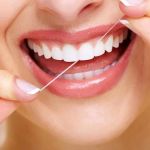The Importance of Good Dental Care for Elderly Patients
As we age, taking care of our dental health becomes even more critical. For elderly patients, proper dental care isn't just about having a pretty smile—it impacts overall health, quality of life, and even self-esteem. I've seen firsthand how dental issues can negatively affect seniors, and in this article, I’m going to dive deep into why good dental care is so important for elderly patients and how you can support a loved one in maintaining their oral health.
1. Why Dental Health Matters for Seniors
When I first started noticing the dental concerns my elderly relatives were facing, I realized how much they were unaware of the long-term impact poor oral hygiene can have. It’s not just about tooth decay or gum disease; poor oral health in seniors can lead to more serious health problems, such as:
- Heart disease: Research has shown a link between gum disease and cardiovascular health. In elderly patients, untreated oral infections can increase the risk of heart disease, strokes, and other serious conditions.
- Diabetes complications: Poor oral hygiene can make it harder to manage diabetes, as gum infections can cause blood sugar levels to spike, leading to complications.
- Respiratory infections: Seniors with poor dental health may be at higher risk for pneumonia and other respiratory conditions because bacteria from the mouth can be inhaled into the lungs.
Maintaining good dental care is not just about the aesthetics of a smile; it’s a vital part of ensuring a senior’s overall well-being. In fact, neglecting dental care can lead to a variety of health complications that can affect both physical and emotional health.
2. Common Dental Issues in Elderly Patients
As we age, the body changes, and so do our dental needs. There are several dental issues that are more common in elderly patients:
1. Tooth Decay
Despite the fact that tooth decay is often associated with children, seniors are also at risk, particularly those who have dry mouths due to medications or natural aging. When the mouth becomes dry, saliva production decreases, and saliva helps protect teeth from decay. Without enough saliva, bacteria have a better chance of causing cavities.
2. Gum Disease
Gum disease is another major concern for elderly patients. It can lead to inflammation, infection, and even tooth loss. The risk of gum disease increases with age, especially if brushing and flossing aren't done regularly. Seniors with poor dental hygiene or those who suffer from other health conditions, such as diabetes, are at higher risk for gum disease.
3. Tooth Loss
Tooth loss is common among older adults, and it can impact a person’s ability to chew properly, affecting their nutrition. In addition, missing teeth can negatively impact a senior’s self-esteem and quality of life. Dentures and implants are options, but maintaining healthy teeth for as long as possible should always be the goal.
3. How to Ensure Proper Dental Care for Elderly Patients
If you have an elderly family member or friend, helping them with their dental care is a great way to support their overall health. Here are some practical tips on how to ensure they receive the best care possible:
1. Encourage Regular Brushing and Flossing
One of the simplest yet most effective ways to prevent dental issues is to brush and floss regularly. While it might seem obvious, many elderly patients struggle with the manual dexterity required for brushing and flossing effectively. If this is the case, electric toothbrushes or flossing tools designed for seniors can make the process easier. I’ve seen how using an electric toothbrush can make brushing much more efficient, reducing plaque and tartar buildup.
2. Visit the Dentist Regularly
Regular dental visits are essential for monitoring and maintaining oral health. Seniors should visit their dentist at least once every six months for a check-up and cleaning. Dentists can spot potential issues before they become serious, such as cavities, gum disease, or early signs of oral cancer. In my experience, regular check-ups can help prevent bigger problems down the road.
3. Manage Dry Mouth
Dry mouth is common in seniors, especially for those who take medications that reduce saliva production. Encourage your loved one to drink plenty of water, chew sugar-free gum, or use saliva substitutes to help combat dryness. Maintaining hydration can improve oral comfort and prevent further complications such as tooth decay.
4. Watch for Signs of Gum Disease
If you notice your elderly relative’s gums are red, swollen, or bleeding, it could be a sign of gum disease. Gum disease can lead to tooth loss if not treated, so it’s important to address it early. Regular brushing, flossing, and professional dental cleanings can help prevent gum disease from developing or worsening.
4. Real-Life Story: The Difference Proper Dental Care Makes
Let me share a personal story. My grandmother, who was in her 80s, struggled with dental health for years. She had multiple missing teeth and often complained about dry mouth. She didn't realize the importance of good oral care until she began facing complications. After visiting a dentist, she started using an electric toothbrush and changed her diet to include more water and soft foods.
After a few months, the difference was remarkable. Not only did her dry mouth improve, but she also felt more confident when speaking and eating. Her overall health also improved, and she started to enjoy life more. It was a reminder for me of how dental care can make such a huge difference in someone’s life—no matter their age.
5. How Dentistry Toothtruth Can Help
If you are looking for comprehensive dental care for your elderly family member, consider visiting our website, Dentistry Toothtruth, for the best resources and recommendations. Maintaining good dental hygiene as an elderly patient doesn't have to be a challenge with the right tools and support. Let us help guide you toward the best options for your loved ones.







 Aspen Dental - Lees Summit, MO4.0 (592 review)
Aspen Dental - Lees Summit, MO4.0 (592 review) Dental Solutions of Roxborough4.0 (219 review)
Dental Solutions of Roxborough4.0 (219 review) Midtown Dental4.0 (68 review)
Midtown Dental4.0 (68 review) Edward Feins, DMD PA4.0 (1050 review)
Edward Feins, DMD PA4.0 (1050 review) Dr. Samantha L. Greer, DDS, PA3.0 (25 review)
Dr. Samantha L. Greer, DDS, PA3.0 (25 review) Universal Dental of Elgin4.0 (71 review)
Universal Dental of Elgin4.0 (71 review) The Importance of Oral Health Education During Pregnancy for a Healthy Pregnancy
The Importance of Oral Health Education During Pregnancy for a Healthy Pregnancy Best Tips for Brushing Your Teeth Properly for Healthy Gums: Essential Techniques for Oral Health
Best Tips for Brushing Your Teeth Properly for Healthy Gums: Essential Techniques for Oral Health Why Skipping Dental Checkups Can Lead to Bigger Oral Health Problems
Why Skipping Dental Checkups Can Lead to Bigger Oral Health Problems Advantages of Porcelain Dental Restorations
Advantages of Porcelain Dental Restorations How Can Diabetes Cause Tooth and Gum Problems? Preventing and Managing Oral Health Issues
How Can Diabetes Cause Tooth and Gum Problems? Preventing and Managing Oral Health Issues Healthy Habits for Promoting Good Oral Health and Hygiene: Tips for a Healthy Smile
Healthy Habits for Promoting Good Oral Health and Hygiene: Tips for a Healthy Smile